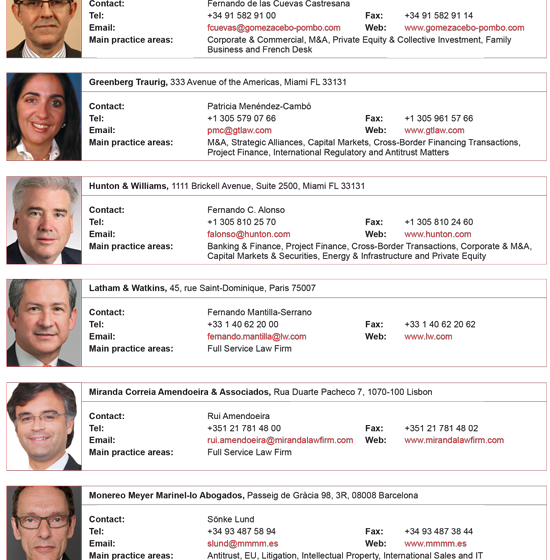Directors must introduce compliance programmes – GMQ Abogados
The regime for directors´ duties is under review and will be reinforced both from the corporate law duties and criminal law perspectives.
In order to improve the corporate governance of Spanish entities, the legislator is focusing on directors as warrantors of internal compliance systems to prevent legal entities incurring criminal liability. It should be noted that new criminal regulations are being prepared and are now close to approval – these regulations will extend criminal liability to directors that have not put in place adequate internal prevention and supervision compliance programmes.
The protection of directors through the implementation of such necessary programmes will become a major concern.
The regime for directors´ duties is under review and will be reinforced both from the corporate law duties and criminal law perspectives.
In order to improve the corporate governance of Spanish entities, the legislator is focusing on directors as warrantors of internal compliance systems to prevent legal entities incurring criminal liability. It should be noted that new criminal regulations are being prepared and are now close to approval – these regulations will extend criminal liability to directors that have not put in place adequate internal prevention and supervision compliance programmes.
The protection of directors through the implementation of such necessary programmes will become a major concern.
Meanwhile, the liabilities of directors are not limited to duties imposed by corporate and criminal law – the Spanish insolvency system sets out severe sanctions for Directors that, through willful misconduct, generate or aggravate the insolvency of the legal entity they manage. Such sanctions may result in directors being held liable, through their own private assets, for unpaid liabilities of an insolvent entity and, therefore, it has become essential to obtain adequate legal advice when managing distressed businesses, as well as in restructuring and refinancing scenarios.
Foreign investors – such as funds or multinationals that are acquiring new entities or groups of companies in Spain, or have incorporated affiliates in this jurisdiction – control their legal entities through the presence of investment managers or high-level management-appointed directors (“Administradores”) on the governing bodies (“Órganos de administración”) of the acquired entities.These individuals are often non-Spanish residents or persons that, despite their Spanish residence, have limited time to attend and supervise the target entity or group or are not exclusively devoted to it.
The investors and appointed directors are especially concerned with the need to avoid the potential inherent director’s liabilities and, accordingly, they want to fully acknowledge their duties and obligations, according to Spanish regulations, as directors. This concern is exacerbated in distressed acquisitions when the acquired and managed business is on the brink of insolvency or needs a restructuring and/or refinancing, as potential liabilities of directors of companies that turn insolvent are especially severe under certain circumstances.
In addition, as of 2010, the reform of the Spanish Criminal Code has introduced the notion that corporate entities may have criminal liability, with specific criminal offences having been established. This requires the implementation of the necessary compliance mechanisms to limit such a risk and avoid liability being incurred by individual directors for the relevant supervision and prevention duties being non-compliant.
The 2010 reform of the Spanish Criminal Code introduced the criminal liability of legal entities and with it came the Anglo-Saxon concept of “compliance”. Today, it is not clear whether the implementation of adequate compliance programmes shall be deemed as an extenuating circumstance or defense against criminal liability. However, many experts think it should be and a modification of the criminal code, which is currently very advanced, does indicate that the cause of the criminal liability of a legal entity is the lack of adequate measures to prevent criminal offences, and thus the lack of the necessary mechanisms for protection and control. This legal interpretation leads to new criminal regulations imposing compliance obligations directly on directors as well as a criminal offence of not implementing the necessary compliance programmes.
Bearing in mind the upcoming amendments to the Spanish Criminal Code, directors of Spanish entities should focus on incorporating the necessary compliance measures and mechanisms to supervise, prevent and control all potential criminal actions that may impact on the assets or means of the legal entity they govern. Not doing so will severely expose such corporate bodies to criminal liability.
Law firms will assist Spanish directors on the implementation of effective compliance programmes to exclude the potential criminal liability of legal entities, as well as the directors themselves, due to the lack of such programmes. The identification of adequate management structures – including the incorporation of supervision and control bodies and similar measures – will become key in the upcoming year.
In addition, firms will continue to assist directors to flag any potential risk, especially when the managed legal entity is in the verge of insolvency.
Rodrigo Martos is a partner at Gallego, Martos & Quadra-Salcedo. He can be contacted at rodrigo.martos@gmqabogados.com











